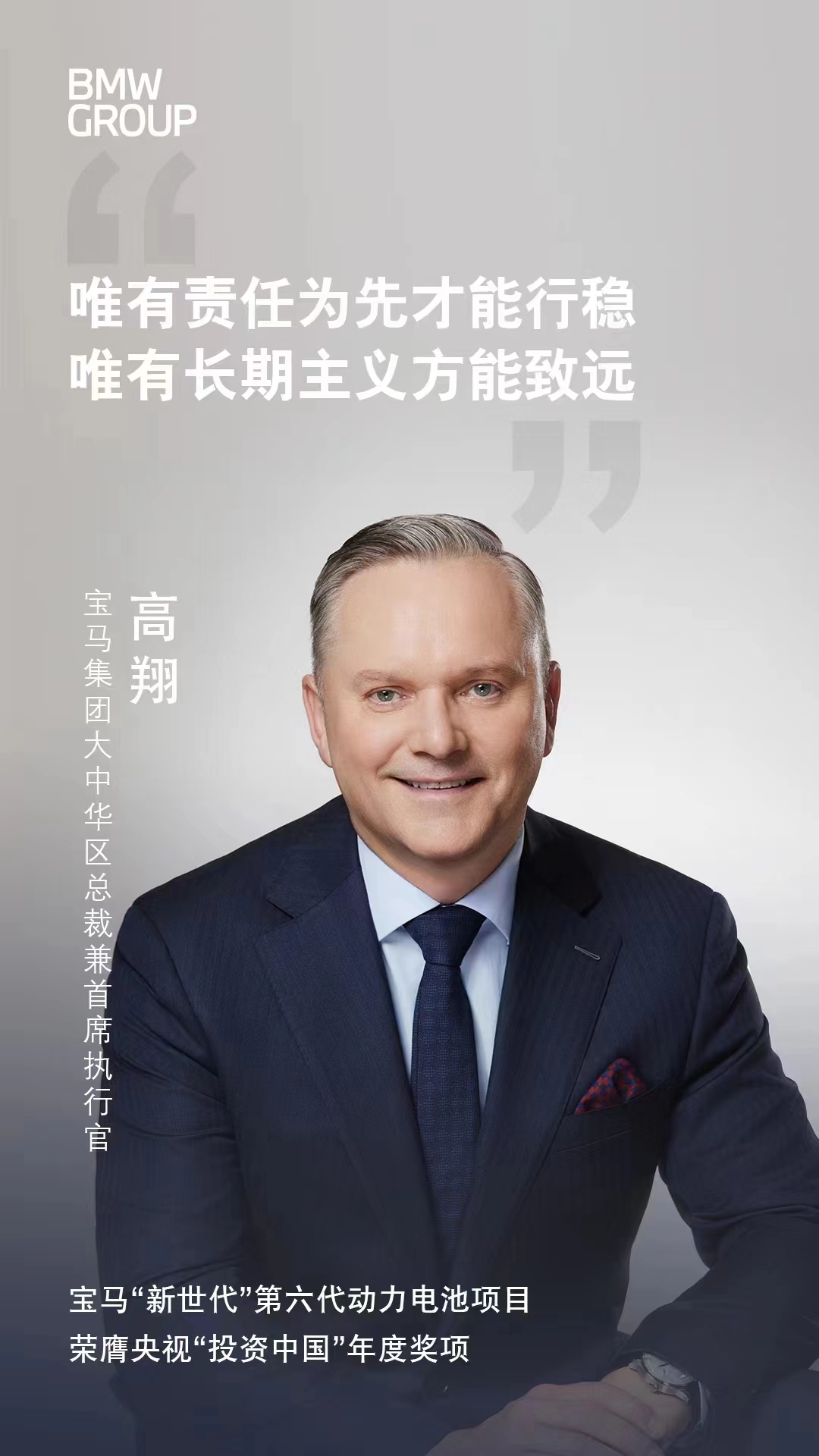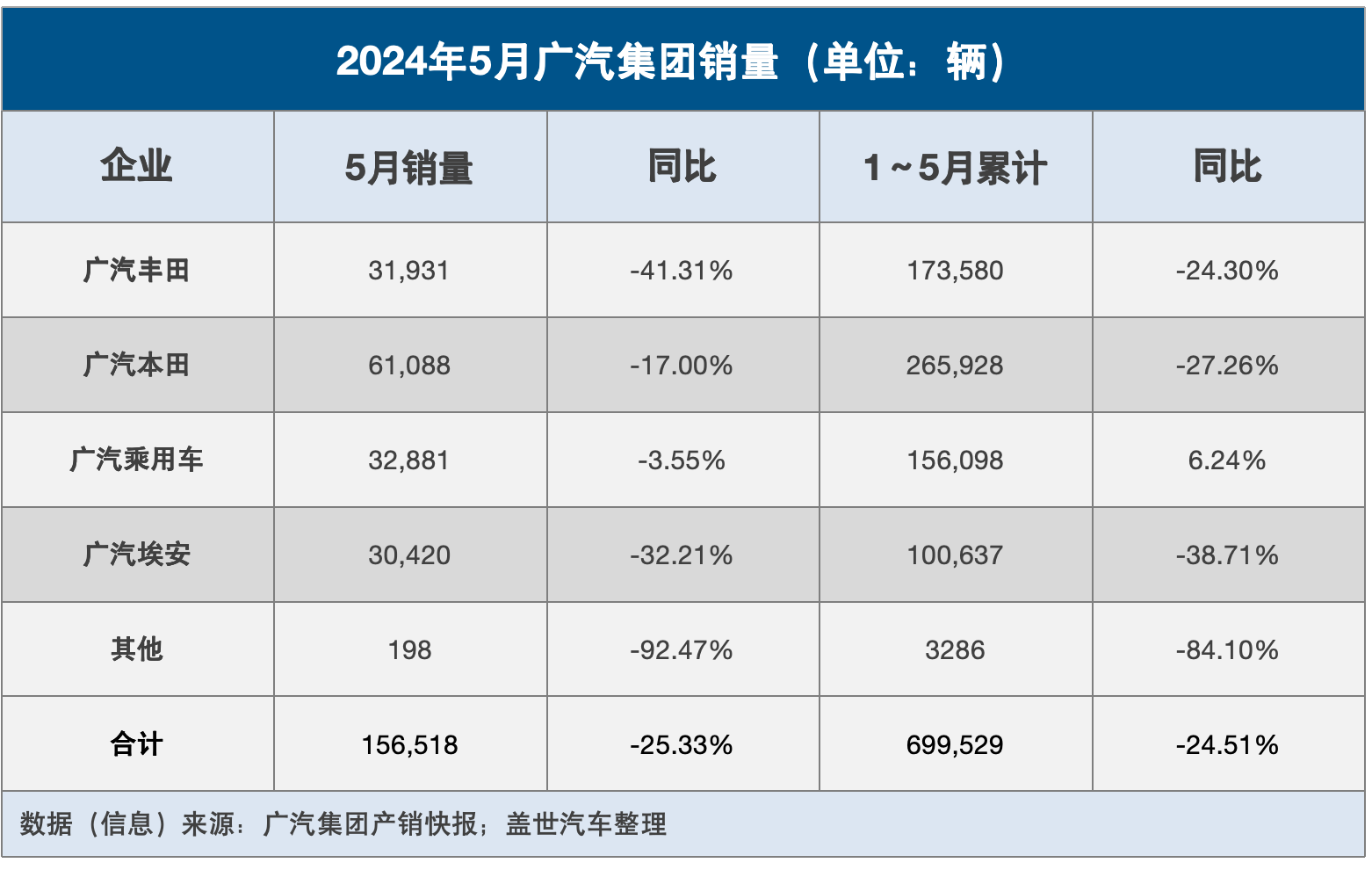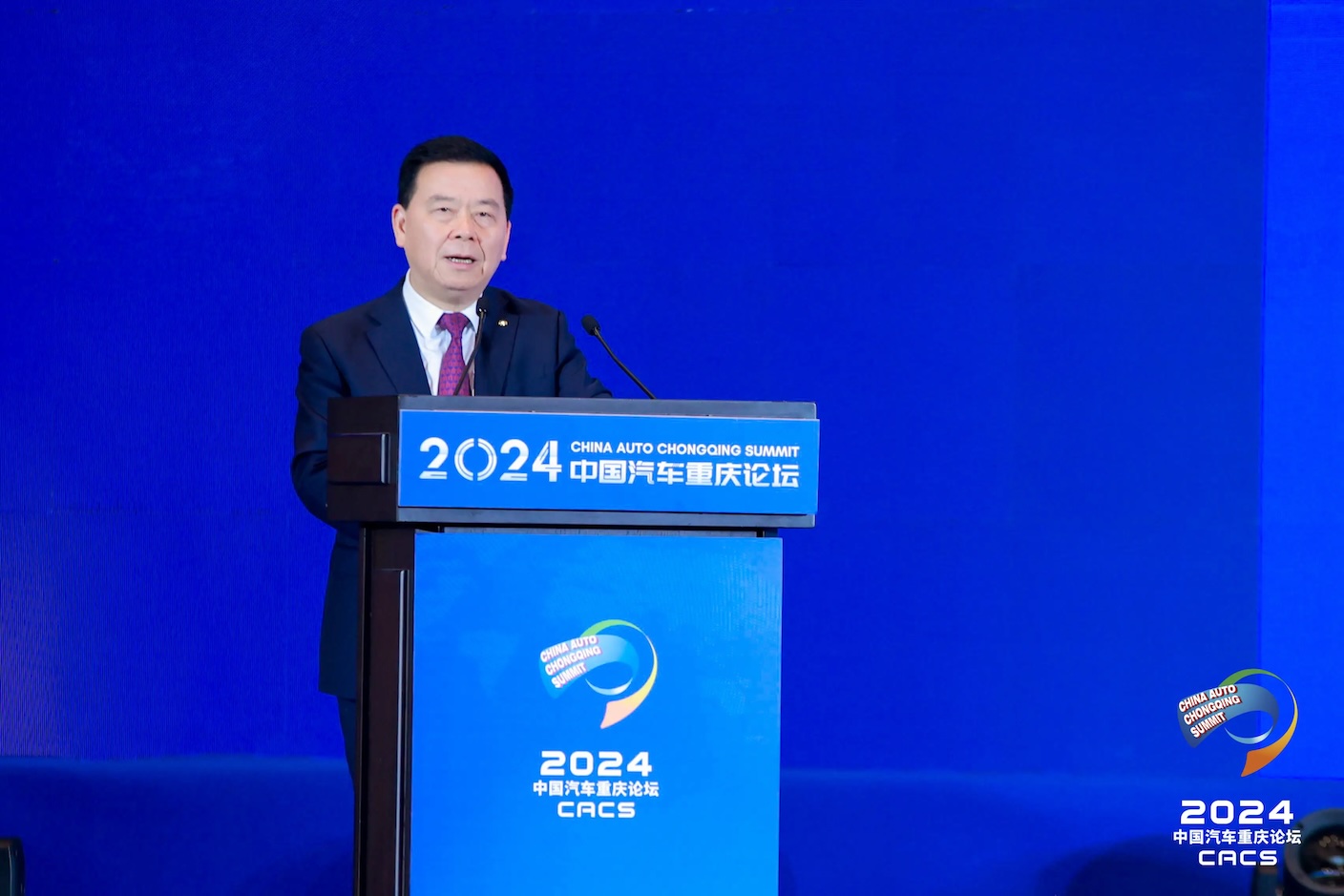Sticking to the bottom line, that’s sticking to long-termism. On June 24, BMW Group’s “Sixth Generation Power Battery Project for New Generation Models” in Shenyang became one of the “Top Ten Investment Cases in China” of the year, and the only automaker to receive this award. A poster of Gao Xiang, President and CEO of BMW Group Greater China, went viral on social media, with the slogan “Only by putting responsibility first can we move steadily, only by sticking to long-termism can we go far.” Although BMW’s new energy vehicles have to be sold at half price, it still sticks to long-termism.
At the 2024 China Automobile Chongqing Forum held at the beginning of the month, Zeng Qinghong, Secretary of the Party Committee and Chairman of Guangzhou Automobile Group Co., Ltd., talked about the importance of long-termism in the automotive industry. He stated, “A long-term goal is a manifestation of vision and perspective for a company, helping it refuse flexible gaming in the continuous innovation and value creation process.” Two years ago at the 2022 World Power Battery Conference, Zeng Qinghong’s statement that “All car companies are working for CATL” sparked widespread discussion in the industry. At that time, due to the impact of battery raw material prices, electric vehicles experienced a wave of price increases. Nowadays, Zeng Qinghong is considered the industry’s “mouthpiece,” advocating for the automotive industry to focus on long-termism, echoing the sentiments of many traditional car companies. Why emphasize long-termism? Radical views see long-termism as a fig leaf for traditional car companies. In fierce market competition, traditional car companies, due to their slow pace of transformation, have lost the initiative in the fields of intelligence and electrification. Against this macro backdrop, traditional car companies advocating for long-termism appear to be masking their passive position. Indeed, the sales of traditional car companies are rapidly declining. According to data from the China Passenger Car Association, retail sales in the domestic market in May totaled 1.71 million units, a year-on-year decrease of 1.9% but an increase of 11.4% from the previous month. New energy vehicle retail sales reached 804,000 units, up 38.5% year-on-year and 18.7% month-on-month, with a retail penetration rate of 47%, a 14 percentage point increase from the same period last year. New energy vehicles have become the main driving force behind the growth of the Chinese car market. In May, retail sales of domestic brands reached 980,000 units, up 12% year-on-year and 12% month-on-month. Mainstream joint venture brands saw retail sales of 490,000 units, a 21% year-on-year decrease but an 8% month-on-month increase. Luxury car brands sold 240,000 units, a 3% year-on-year decrease but a 19% month-on-month increase. In addition to the rapid growth of domestic brands, the market share of joint venture/foreign brands is declining. Notably, in May, emerging automakers captured a market share as high as 16.3%, surpassing Japanese brands. Japanese brands saw their market share in the domestic market drop to 14.8% in May. The automotive market is undergoing significant changes, but traditional car companies are struggling to keep up with the pace. Even Guangzhou Automobile Group, which used to rely on Toyota and Honda, is facing a certain crisis.
According to the production and sales report released by GAC Group on the Shanghai Stock Exchange, the cumulative sales of GAC Group in the first five months of this year were approximately 700,000 vehicles, a decrease of 24.5% year-on-year. Among them, the cumulative sales of GAC Toyota were 174,000 vehicles, a decrease of 24.3% year-on-year; the cumulative sales of GAC Honda were 266,000 vehicles, a decrease of 27.3% year-on-year. The decline in sales, combined with the consecutive loss of terminal selling prices, has increased the financial pressure on GAC Group. Financial report data shows that GAC Group’s revenue in the first quarter of this year was 21.346 billion yuan, a year-on-year decrease of 19.12%; net profit was 1.22 billion yuan, a year-on-year decrease of 20.65%. Unable to sustain, GAC chose to downsize, and GAC Toyota and GAC Honda also became “hard-hit areas” for layoffs. “It’s not a solution to keep going inside. What is the goal of the company? It is to make a profit. And what is the purpose of making a profit? It is to contribute to the country and society, pay taxes, and create job opportunities. But now, how many people have been laid off in the industry? GAC Group has also laid off many people. If this continues, what will happen to society and the country?” Zeng Qinghong said. The outbreak of the new energy market and the intense “price war” have gradually put many traditional car companies in a passive position, with GAC just being one of them. In this industry background, Zeng Qinghong called for the industry to focus on long-termism, oppose excessive internal competition, and implement the practice of “equal rights for oil and electricity,” which many radicals interpreted as GAC being in a hurry and unable to withstand it, and Zeng Qinghong was also criticized by many netizens.
Industry generally supports Zeng Qinghong’s remarks, according to Geely Holding Group Chairman Li Shufu. He said, “If the market environment is mature, regulations are sound, and enforcement is strict, transparent and fair competition can promote industry progress. Otherwise, negative impacts may arise.” He explained that while internal competition is not scary, unlimited internal competition can distort industry development and ultimately make society pay the price. What is long-termism? In the fierce market competition, internal competition has long been the norm in the automotive industry. In addition to competing in technology, products, prices, and marketing, bosses like Wei Jianjun and Yin Tongyue, leaders of traditional car companies, have also started live streaming to interact directly with consumers. On the surface, everything seems smooth, but behind it lies the bitterness of automotive professionals. The fast pace of OEMs is gradually spreading throughout the entire industry chain, with component companies not only accelerating their work pace but also constantly guarding against the risk of being replaced by other suppliers. More unsettling than the accelerated pace of the entire industry chain is the changes in the verification process for whole vehicles. “In today’s market, competition is very intense, and many car companies can launch a new product in just two to three years. SAIC General Motors also wants to be this fast, but the standard is here. Our vehicles cannot be launched without completing these tests.” An expert from the Guangde R&D Testing Center under SAIC General Motors said in a recent live broadcast. It is reported that before each new vehicle from SAIC General Motors is launched, the total test and verification mileage must exceed 6 million kilometers, including conventional durability testing, extreme “three highs and one low” testing, and public road user scenario testing. Therefore, SAIC General Motors emphasizes not treating users as test drivers and not treating the road as a test track.
If measured by SAIC-GM’s standards, many companies in the industry are introducing new models too quickly, risking quality issues. Although SAIC-GM’s standards may not be the best, it is certain that testing standards directly impact the speed of new vehicle launches. In the traditional era, new cars followed a rhythm of minor changes annually, major changes every three years, and a new generation every five years. Nowadays, new models are being updated even faster, with examples of facelifts within a year being common. Looking at the development of traditional fuel vehicles and the current market status, it can be concluded that moderate competition drives the automotive industry’s pace, while excessive competition leads to lowering standards to gain a competitive advantage. This logic applies to technical and marketing competition as well, with actions like technical plagiarism and fake reviews being products of excessive competition. In addition to maintaining standards during competition, the long-term perspective should also include the social responsibility that the automotive industry should bear. At the 2024 China Automotive Chongqing Forum, NIO’s founder, chairman, and CEO, William Li, called for the industry to address battery life issues. He stated that since 2016, 20 million new energy vehicles have been sold, with most having an 8-year/160,000 km battery warranty. If this issue is not addressed, there could be problems with 20 million vehicle batteries within eight years. While Li may be promoting his battery swapping technology, battery safety is crucial for the entire industry. Improperly handled power batteries can lead to land and water pollution, among other social issues. The industry must address and solve these problems to achieve the goal of reducing emissions with green energy. Do not let short-term gains blind you and damage the results of long-term thinking. This is a question that every car company needs to consider.



